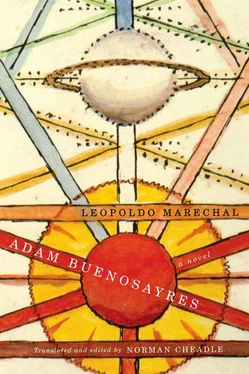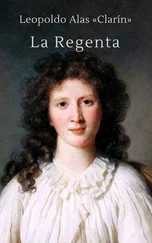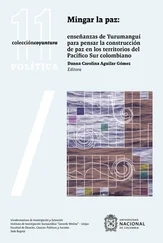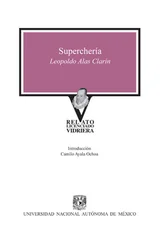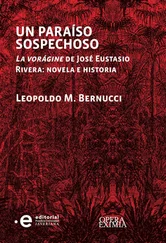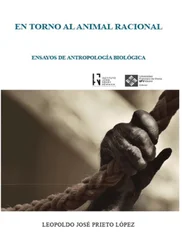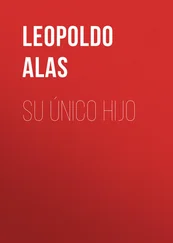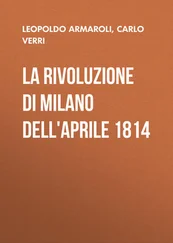— No, it’s not true, he whimpered in response to the voices. To fend off the vision of death still haunting him, he would recite his lesson in National History: “A bullet had killed San Martín’s horse, and just as a Spanish soldier was about to run him through with his bayonet…” 30But it was no use, the death scene would return in terrifying detail — the candelabras, the flowers, the hushed murmurs. “Aaah!” His anguished shout would wake up his mother then. “It’s Adam, he’s had a bad dream,” she would say. “I’d better wake him up.”
Half amused, half in earnest, Adam evoked that childhood as though it were not his but an absent brother’s, or something he’d read many years ago in the book Corazón , 31beside the rain-lashed windowpane, as his grandmother Ursula sang:
Good Friday, Good Friday,
day of great Passion,
when they crucified him,
the Divine Redeemer. 32
Nevertheless, how well he recognized himself in the soul of that afflicted child! It was certainly more pleasant to remember his grandfather Sebastián, buried not long before in the cemetery at Maipú. How to reconstruct the face of Grampa Sebastián? He clamped his eyelids tight and thought about him intensely. Right away, his features loomed out of the interior blackness: his curved nose, his rain-soaked beard, his eyes round and shiny like the heads of screws. Everyone in Maipú knew that Grampa had got to Buenos Aires by sailboat, just like Juan de Garay, 33and that he’d been a smuggler in Rozas’s times. 34Adam said so in class. The other kids didn’t believe him, but Don Aquiles took the opportunity to teach them that Rozas had been “a cruel despot” and that smuggling was a very ugly thing, punishable by law. What would Grampa have been like back in those days? Did he wear a chiripá , leather boots, and a silver knife in his belt, like the ones you see in National History engravings? Adam closed his eyes, as he used to do in the Maipú nights, and once again recalled him sitting out under the trellis that bore the family grapevine full of greedy sparrows, holding the porcelain jug tucked between his thighs (he liked dark wine), and laughing in praise of the morning. Then he’d tell endless tales, children and adults alike hanging on every word of his colourful language and feisty proverbs.
Of all his stories, the one about blood was best! Grampa Sebastián had been taken prisoner by the Mazorca. His men were wounded, his smuggler’s whaleboat burned. Two Mazorca agents (perhaps escaped from the novel Amalia 35) take him to the residence of the Illustrious Restorer. The henchman on his right (God save us all!) has a patriotic scar clear across his face. The one on his left is smiling, but his smile looks a lot like his buddy’s scar. Grampa, however — and he doesn’t want to brag, mind you — Grampa is as calm as if he were running a shipment of Paraguayan yerba . It’s siesta time; not so much as a cat can be seen in the streets of Buenos Aires. Finally, they go into an entrance hall, cool and dark as a cave, and come out onto a patio where a mulatta dressed in red, hunched over her mortar, mashes corn (they were probably having mazamorra that night!). All of a sudden, right then and there, Grampa runs into Don Juan Manuel himself. He’s sitting on his folding cot, drinking mate without sugar and staring at his slippers, embroidered perhaps by Manuelita. One of the thugs, the scarface, whispers something in his ear, but the Illustrious Restorer, engrossed in thought, seems not to hear him. Finally he tears his eyes away from his slippers and looks at Grampa Sebastián’s boots, through which protrude earthy toes with nails of quartz. “So you’re the rascally Basque who brings in merchandise from Paraguay?” Don Juan Manuel says at last. “In the service of God and the Holy Federation,” answers Grampa. His words fall in a strange silence; the black woman is no longer mashing corn but gawking in amazement at the scene. “Let’s see. How many savage Unitarians have you taken over to the other side?” “I don’t smuggle men, Illustrious Restorer.” “Humph!” exclaims Rozas. “I suppose you want me to believe that you’re a good Federalist.” “I am a good Federalist!” replies Grampa, and he isn’t lying. Don Juan Manuel’s eyes are now following a fly that buzzes and swivels among the clusters on the grapevine. The black woman’s eyes are a pair of saucers, and the scarface studies the nape of Grampa’s neck as though choosing the best spot on which to play a tune with his knife. 36“And your insignia? Come on now, where’s your good Federalist insignia?” asks Rozas mockingly. 37Grampa Sebastián starts laughing; his hilarity shakes his beard like a gust of wind. Quite matter-of-factly, he unbuttons his shirt to reveal his bare chest and the wounds he got in the fray. Blood is running beneath his gold-studded gaucho belt, down his thighs, and dripping onto his leather boots. There’s his insignia! The illustrious Don Juan Manuel is struck dumb, for sunlit blood at times can be as beautiful as the purest rose. He turns to his men: “Let him go.” Then adds: “I like this Basque!”
O adventures of yesteryear! thought Adam. Horses, rain, wind! Horses with sonorous bladders and pure vegetable breath, thundering across the wide open spaces of Maipú, on a day devoted to the fabulous enterprises of childhood! What to do now? What to do with these useless hands? Maybe the eight strapping Basques who’d borne Grandfather Sebastián to the Maipú cemetery had buried adventure along with him. It had been a summer morning, and the eight Basques, arriving in front of Ugalde’s general store, had set down the coffin to have a sangría of wine, water, and sugar. Adam had stayed outside, and his child’s eyes wandered from the black box parked in the dust to a flock of sparrows darting about nearby on the parched earth. Where had Grampa gone? To the ranch of “Don Cristo,” as they said on that old gaucho record they used to listen to on the phonograph at home? That’s probably how it was: Grampa Sebastián had gone to that ranch in the sky, where they’d given him permission to unsaddle his dapple-grey horse and let it run loose among the stars. 38
Adam Buenosayres put down the pipe Eleonore, now cold in his fingers, and contemplated his hands, two dead grey things that ended in five dead grey points. On that same day, which strode ahead like a vulgar orange-hawker, how many possible destinies were offered him by land and sea! But what to do with his five-pointed hands? A shifty player, a weaver of smoke 39— that’s what he’d been and still was! It would be better to go all the way, right down to his last card, as Grampa Sebastián had done, in the great dream each man weaves in the external world and which is called “a destiny” — whether the dream was good or bad, sublime or ridiculous, at least it would be an authentic gesture, an honourable posture before the Absolute. But he, immobile as a god who sits cross-legged and makes himself a self-reflecting mirror, had always been prone to the poetic madness of assuming imaginatively his possible destinies and living them out ad intra , a hundred phantasmagorical Adams having struggled, suffered, triumphed, and died. Did he want to be a political leader, a movie star, a plutocrat, or a saint? He had only to close his eyes, and a virtual Adam tasted power, covered himself with laurels, amassed the gold of fortune, or was interred with the palm-branch of the martyr.
Disturbed by the recollection of his mental destinies (some of those fictions would certainly make him squirm with shame and ridicule, were he to review them now by the clear light of day!), Adam contemplated once more his dead, grey hands. For some time now, he thought, his existence had been limited to a tiresome recapitulation of the already lived, as if his soul, seeing its present as a desert and its future denied, was now labouring in that pivotal stage of life that they say precedes its demise or metamorphosis. He felt the urgent need to question himself deeply, in order to know at least what was at stake in his presumed death or transformation. He would have loved to consult with the illustrious Boethius! 40Or even Poe’s crusty old crow, if only he would appear at his bedside!
Читать дальше
